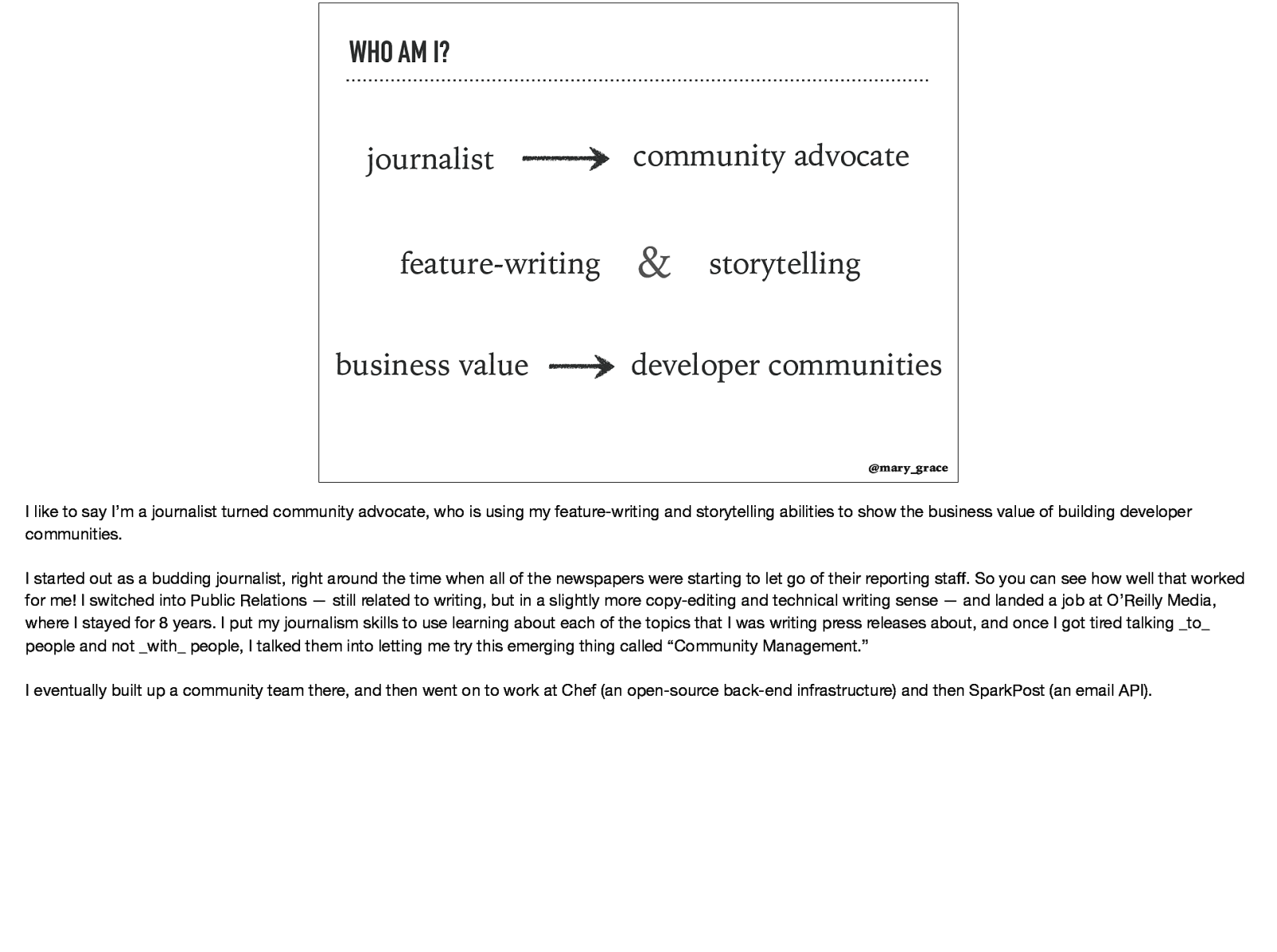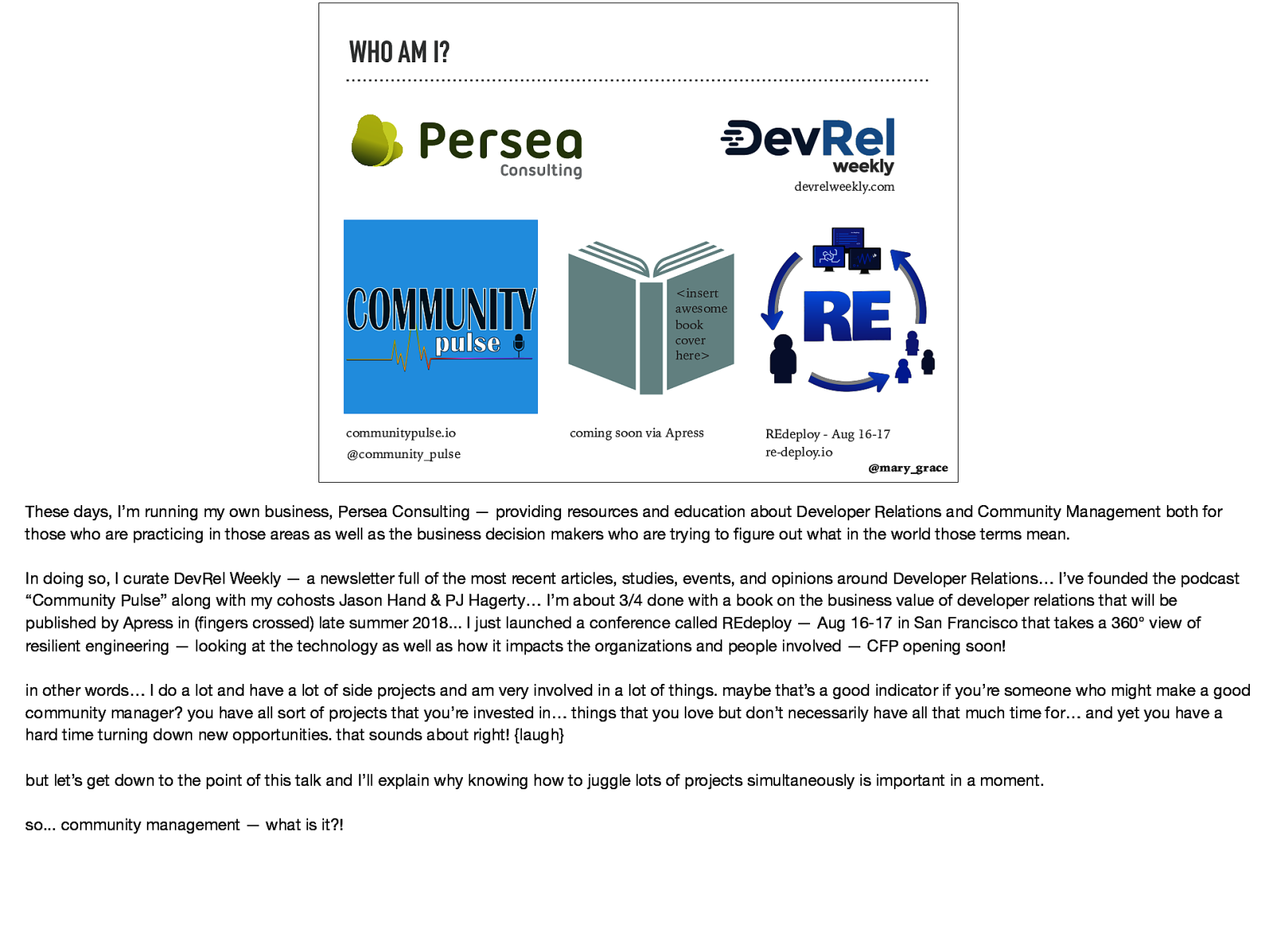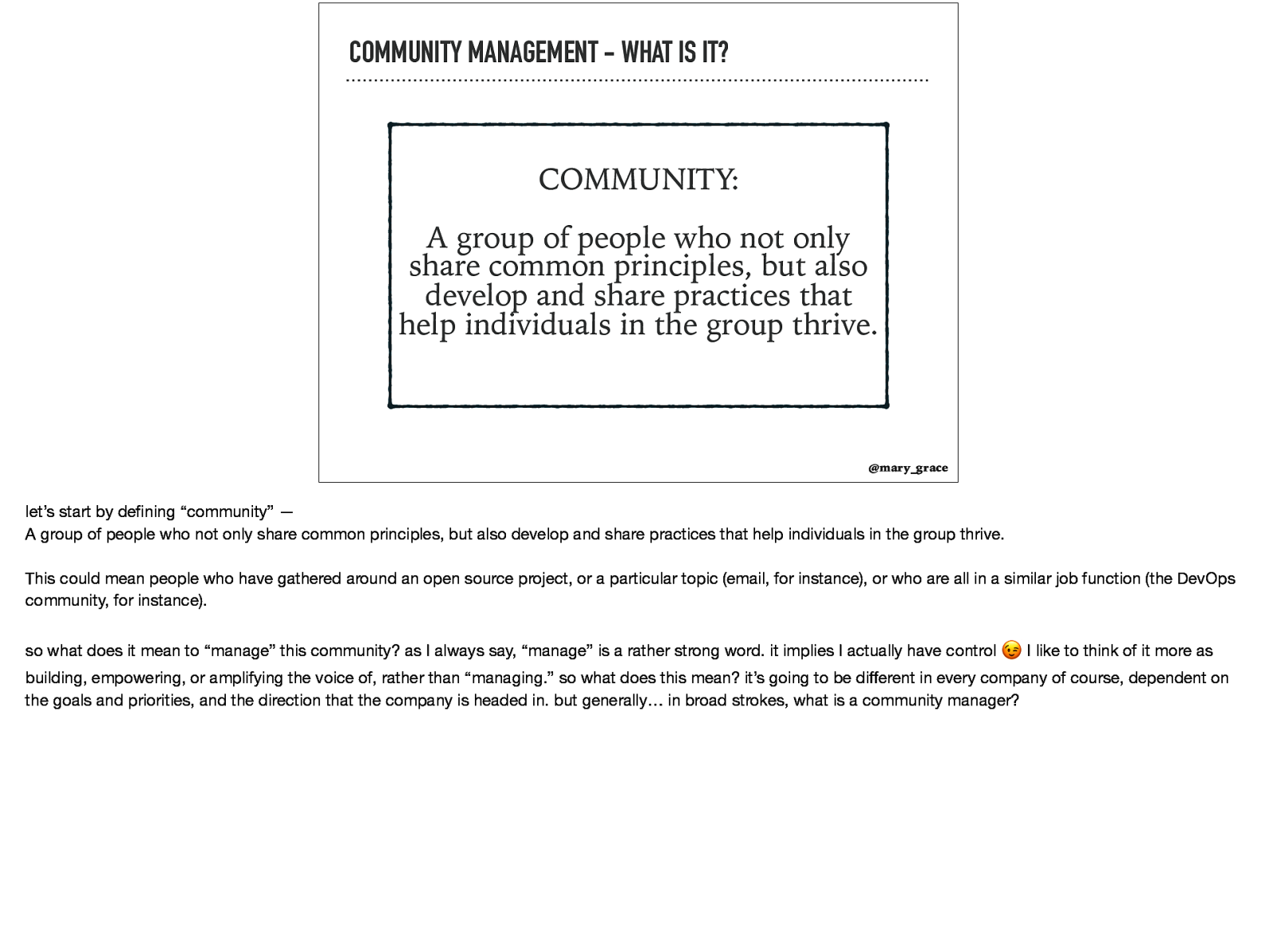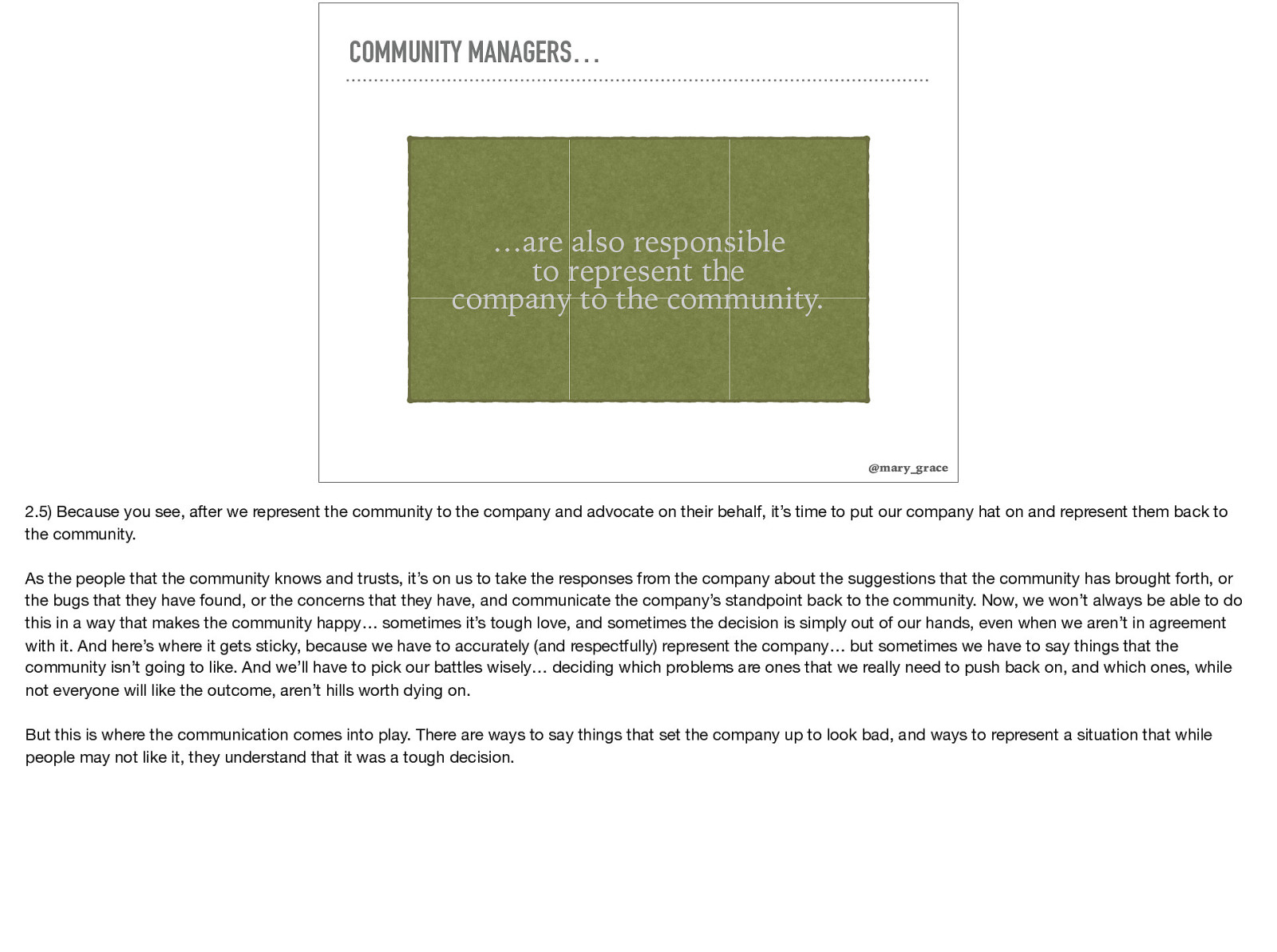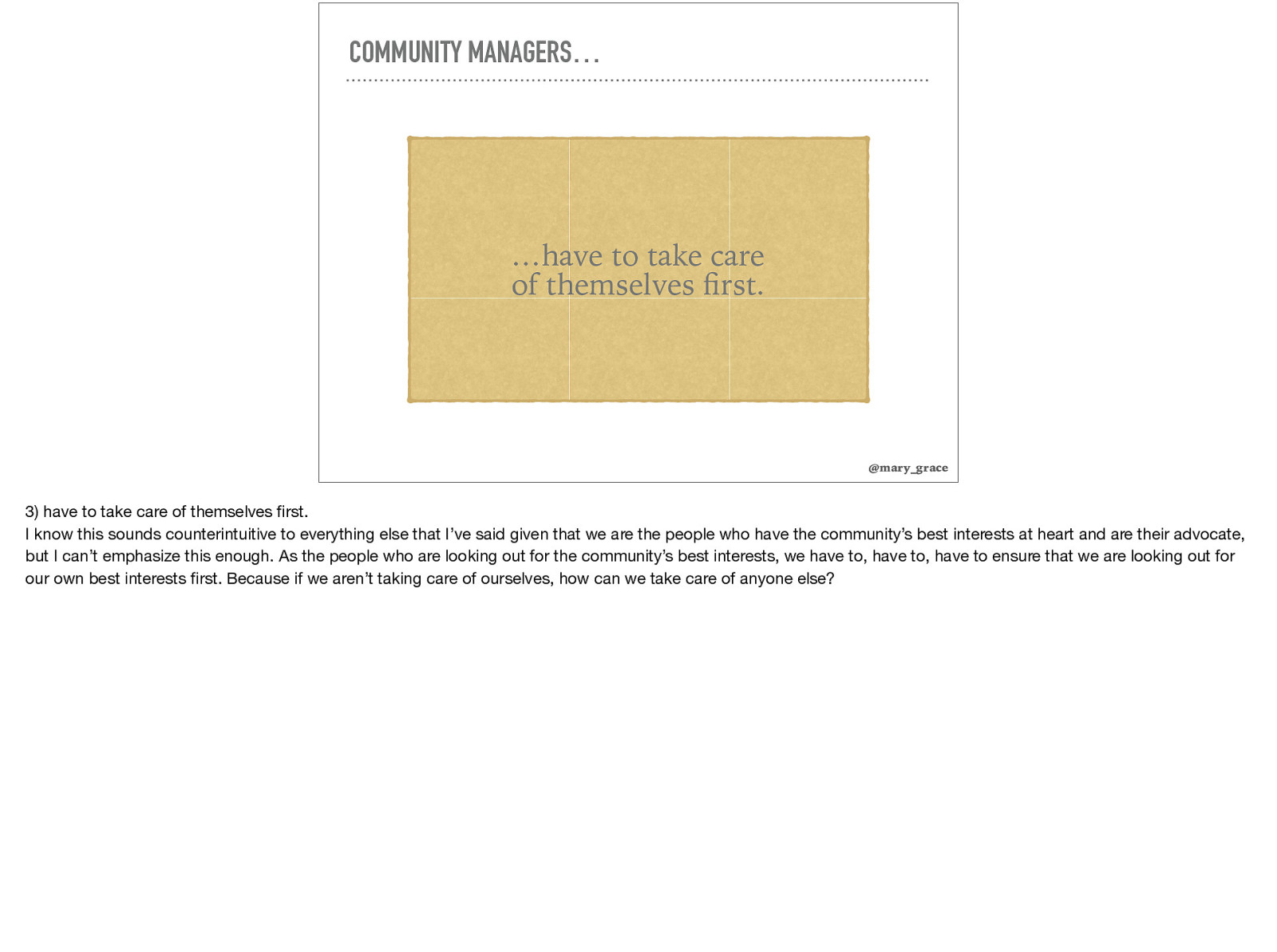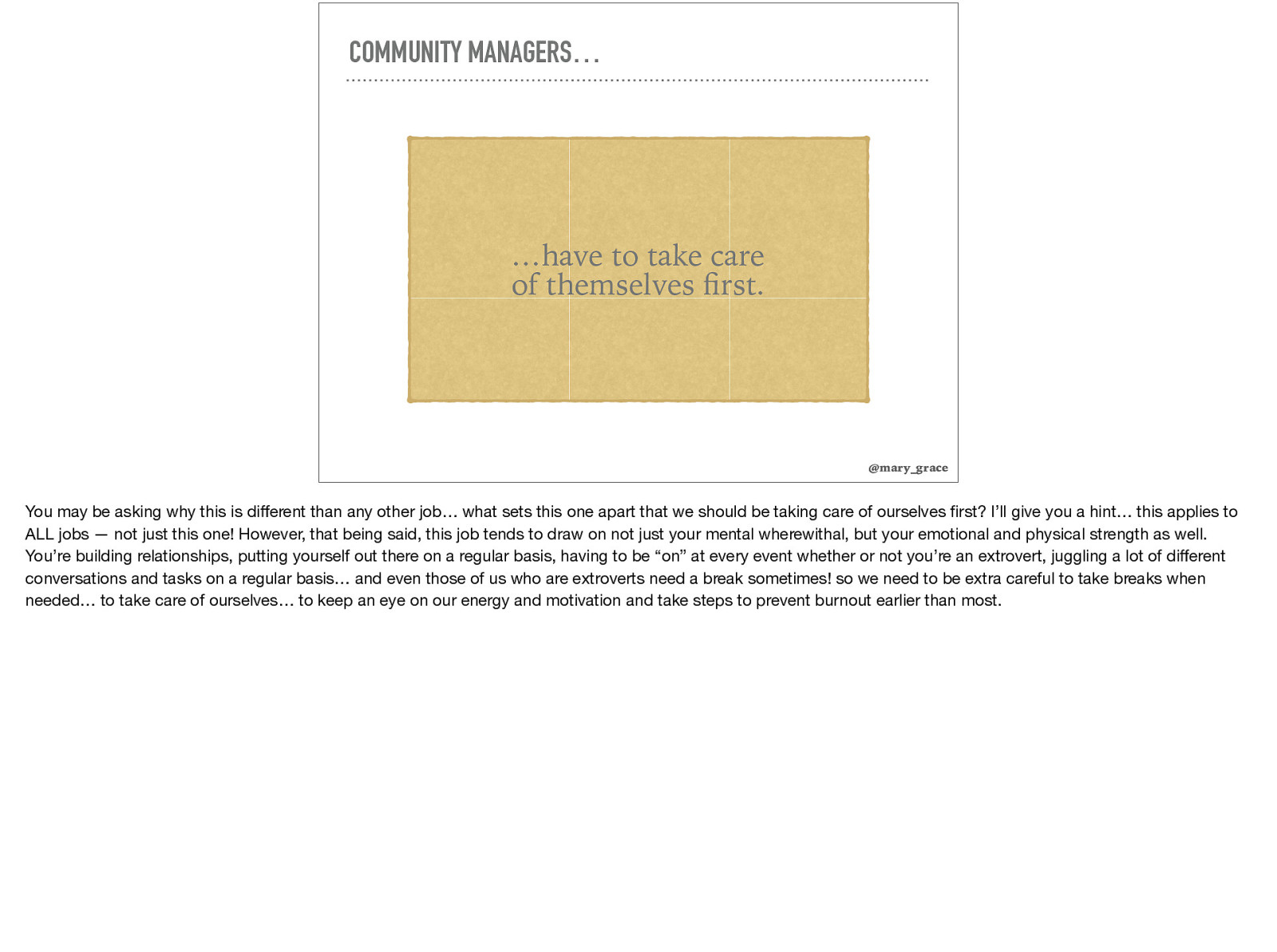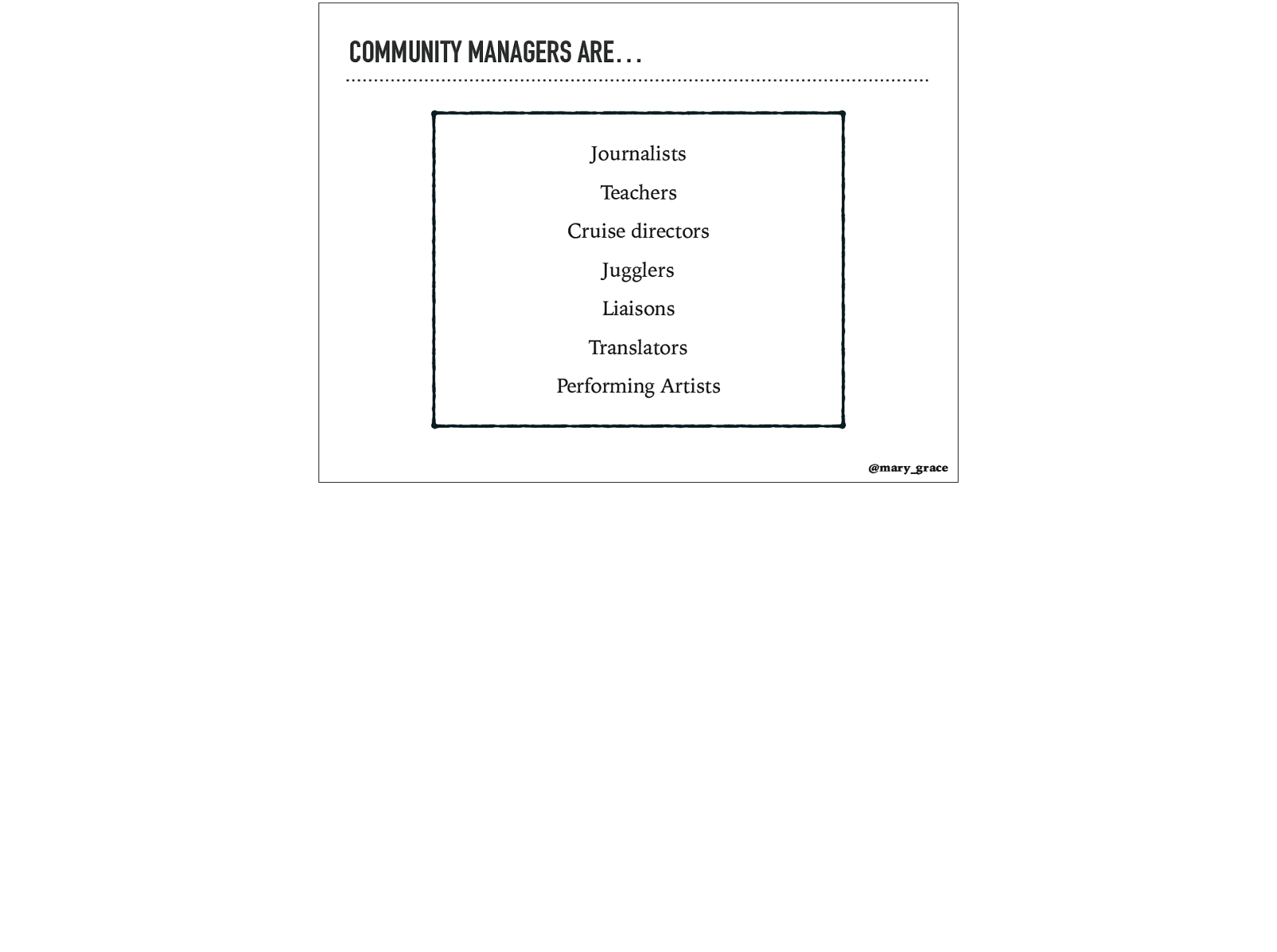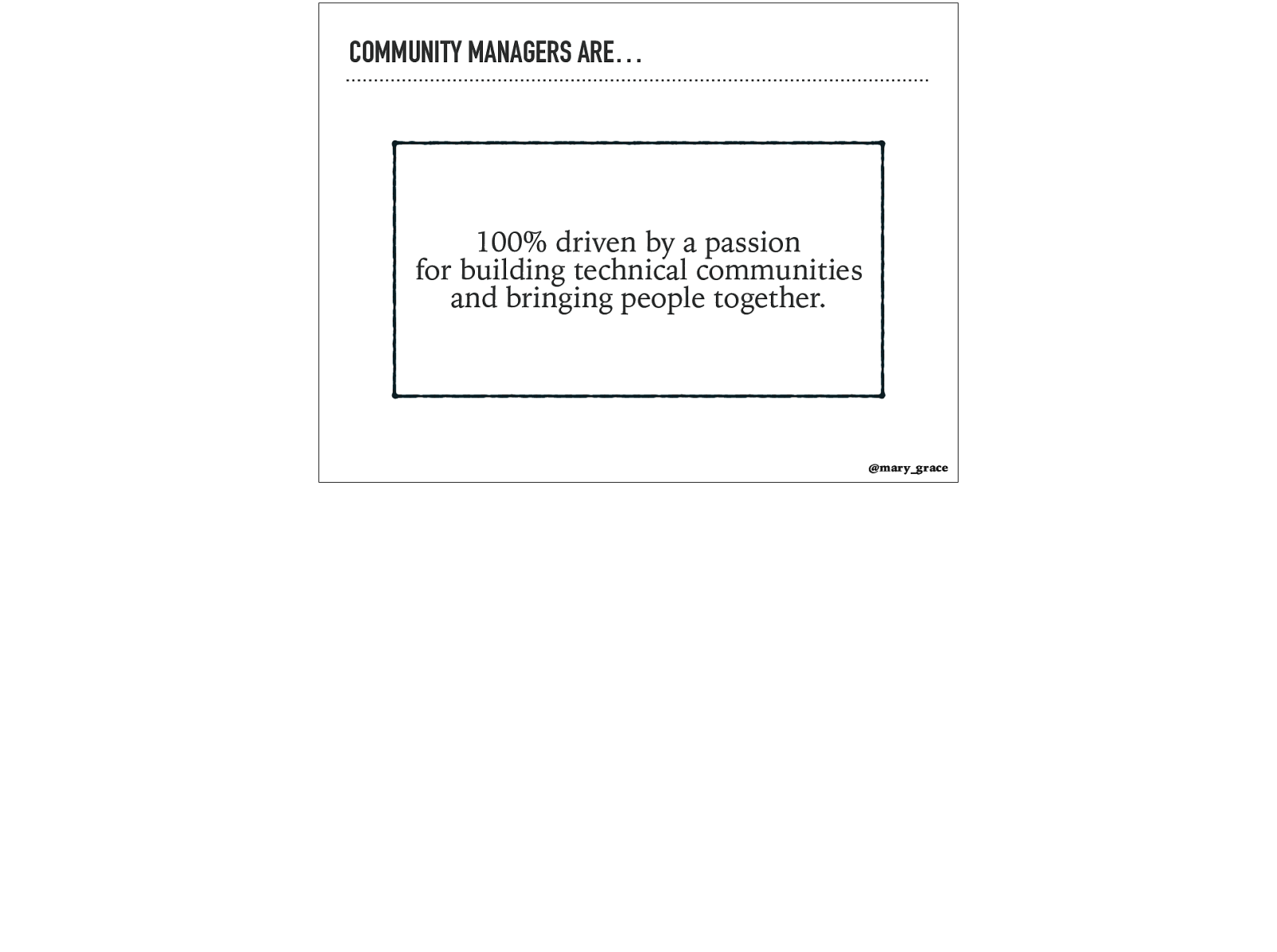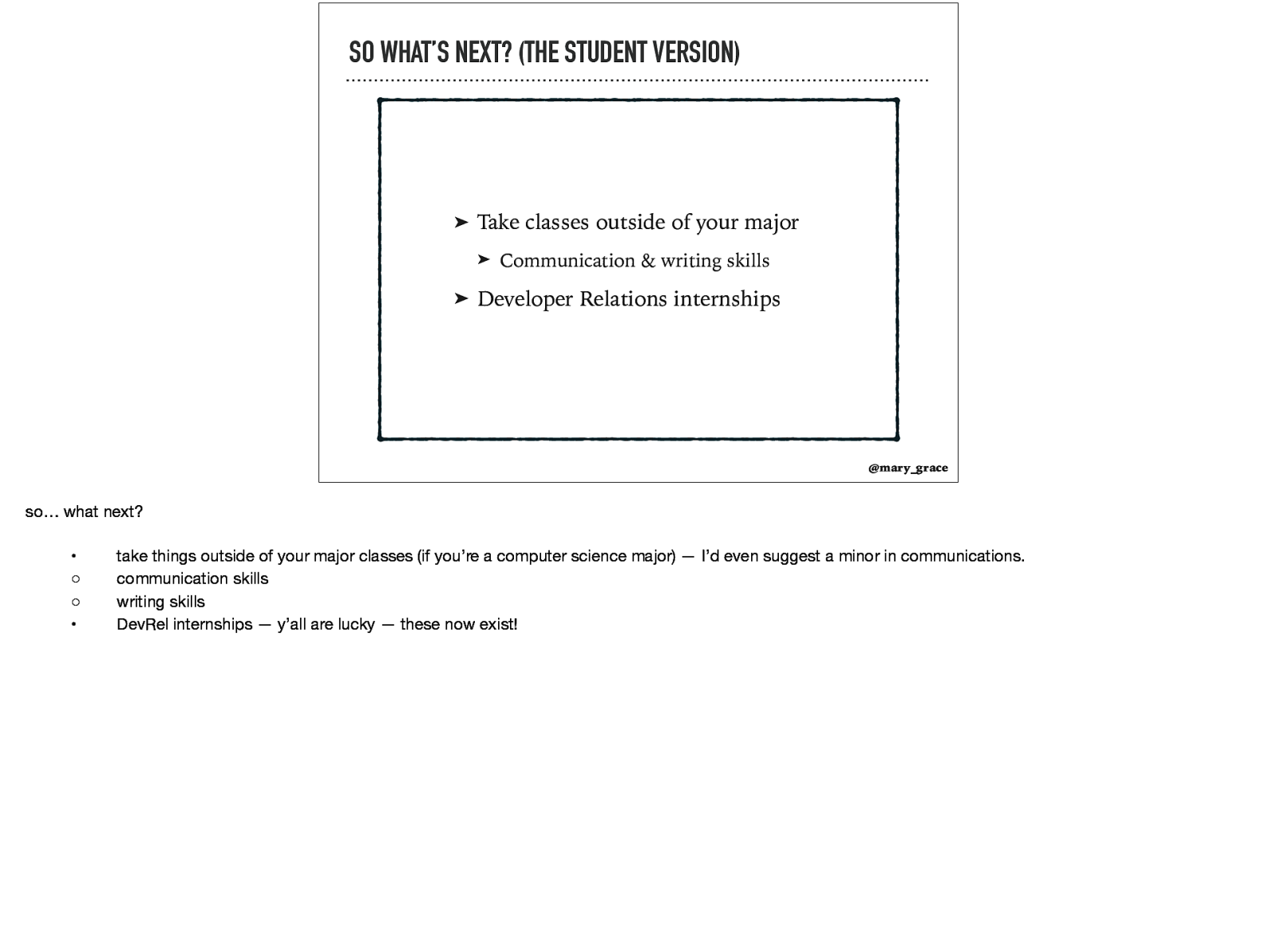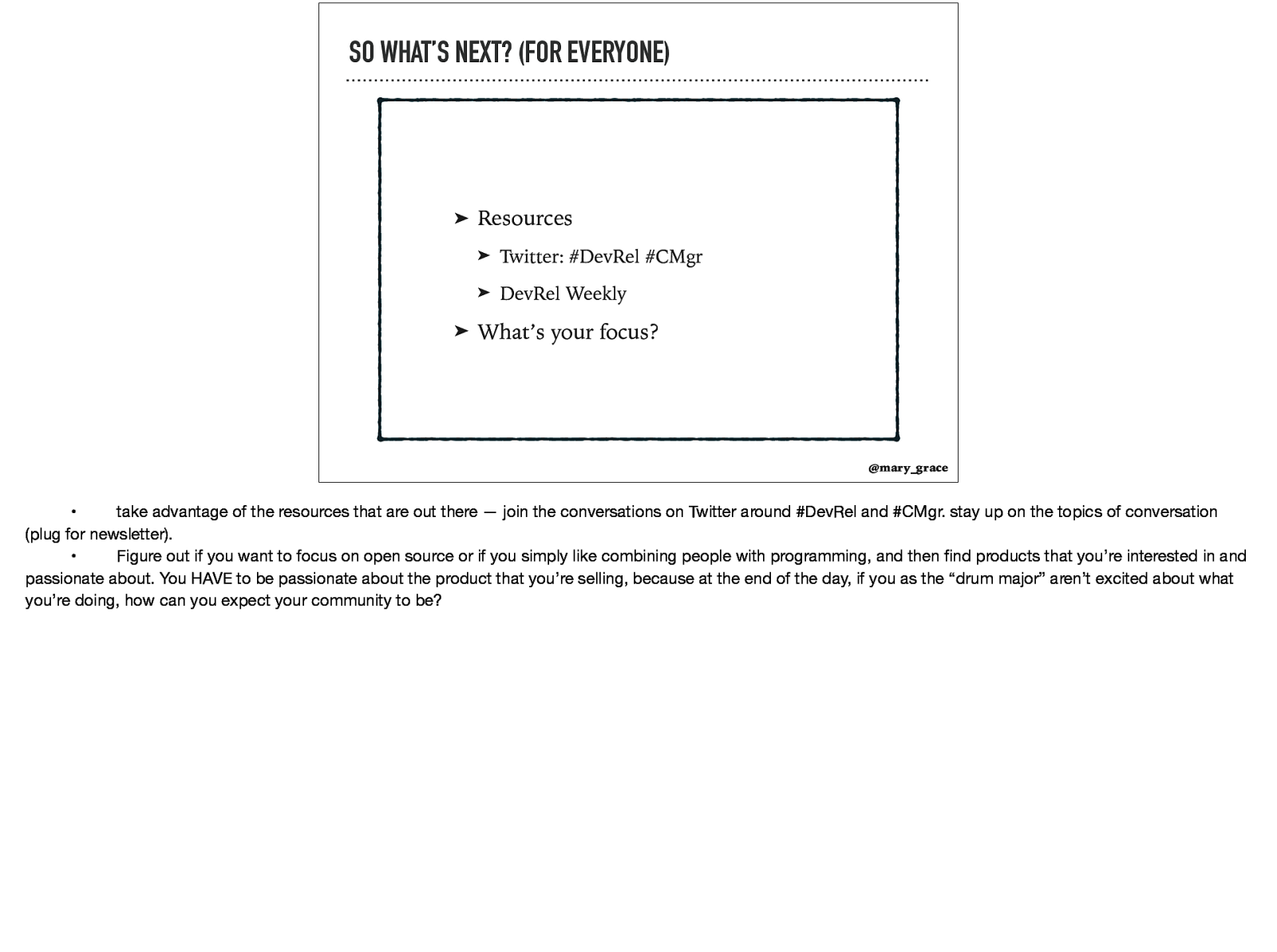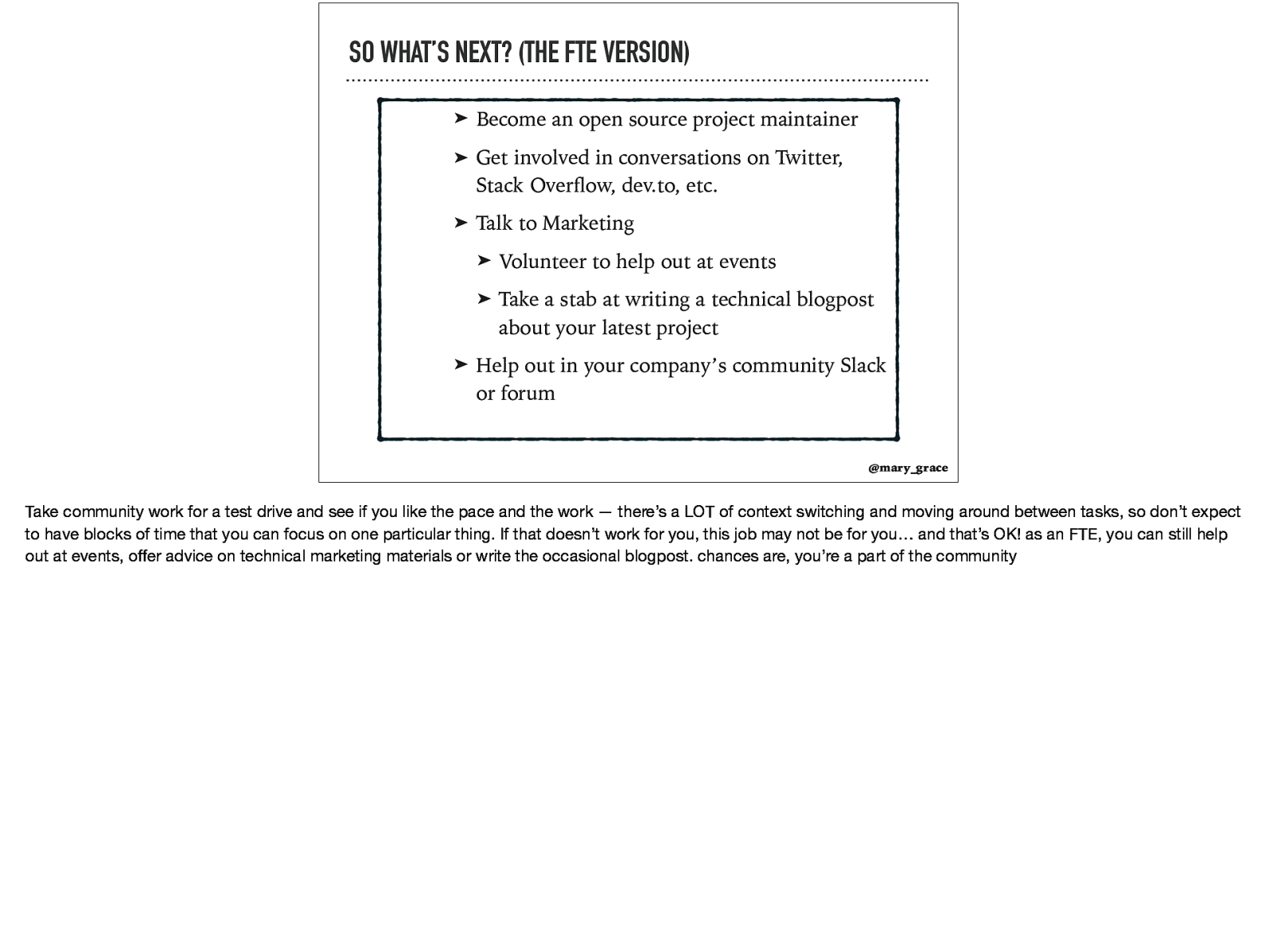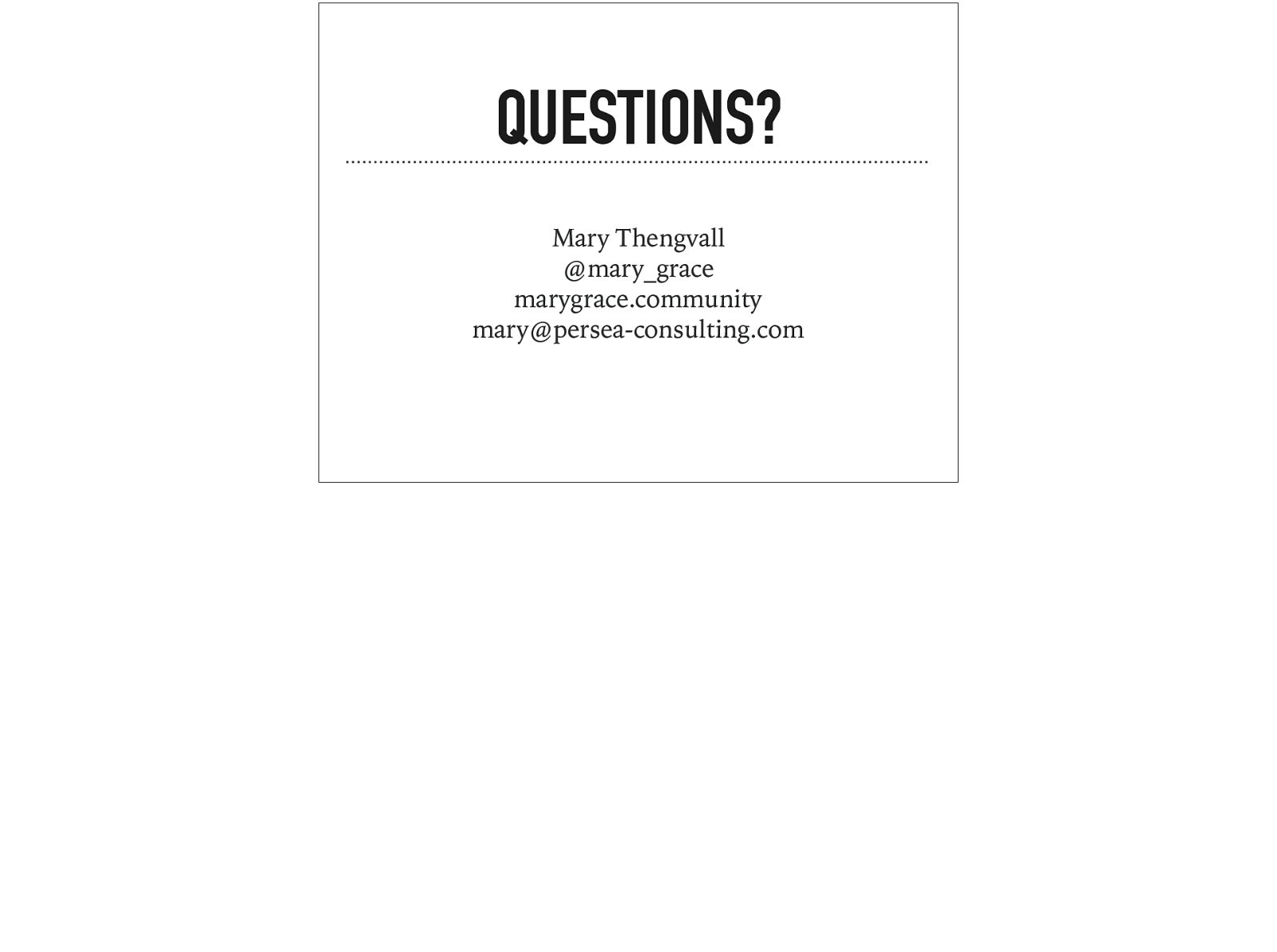COMMUNITY MANAGERS…
…are responsible to represent the community to the company.
@mary_grace
But if I spend time getting to know them… understanding their pain points and why they’re passionate about their roles, then when I hear about something from the community that’s related to one of their projects, I can bring it up in a helpful and relevant manner. So instead of just saying, “that’s a terrible tweet!” or “why in the world would we want to pursue an integration with that company?” I can say “I noticed that the community has been really excited about this topic recently — some of them have been using this hashtag, or referencing this particular community twitter account — I bet that would get a lot of engagement!” or “I’d love to learn more about the integrations that you’re pursuing and how I can help connect you with community members who might be able to give you feedback on integrations they’d love to see, or the types of things that they’re looking for.” and then instead of it coming across as a “holier than tho” stance, it comes across as helpful information from a team player, which, after all, we are! Additionally, if we have a good relationship with these departments and can make these hand-offs, that’s a great metric to track. And if you’re at all familiar with the world of developer relations and community management, you know that one of the hardest things is figuring out what metrics are worthwhile and useful to track. But keeping track of the number of connections you’ve made, the number of projects you’ve been able to offer feedback on, or the number of “warm hand-offs” you’ve made of community members to other people within the company, whether marketing for a content opportunity, product for beta testing, or sales for an intro their decision makers… those are direct points of value that you can trace back to your work. You’ll find that as this respect and rapport is built, and as people start to recognize you as the expert that you are, your coworkers will start approaching you for your opinion on things before they’re released, so that instead of you having to reactively approach people about things that have already happened, you can offer feedback to things before they launch. As Shira Levine, another great community mgr says, we aren’t growth marketing (or product, or sales), but we’re the best friend who offers insight and advice. And that relationship benefits us as well! With the trust and respect built up, we can now ask questions about the product roadmap and make suggestions that would





